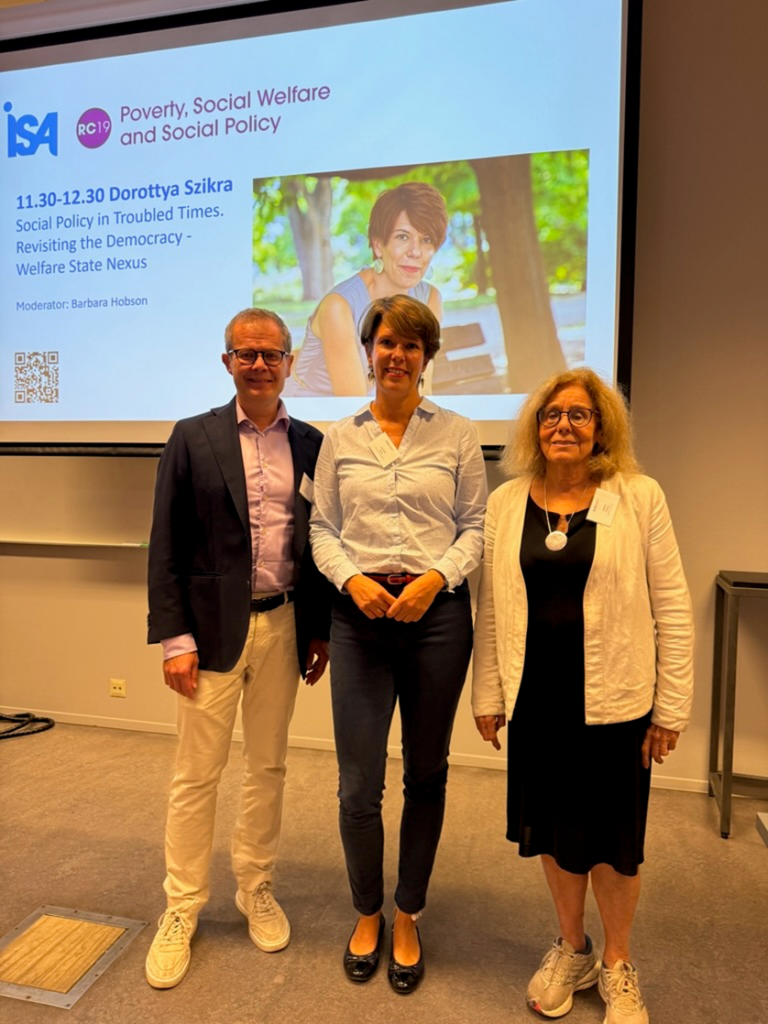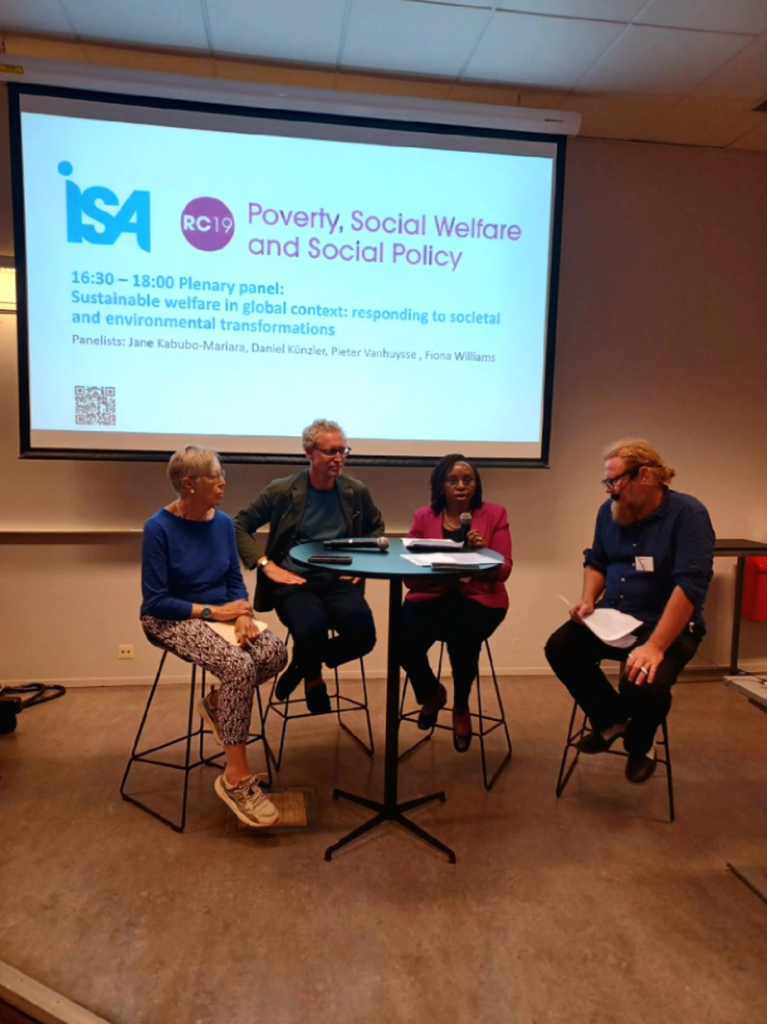In September, 110 scholars attended the RC19 conference in Oslo to discuss research on global social policy and social policy globally. This year, the main topic was “Sustainable welfare in global context: responding to societal and environmental transformations”. The conference was opened by State Secretary Per Olav Hopsø (Labour Party), from the Norwegian Ministry of Labour and Social Inclusion.
The keynotes, plenary panels, and parallel sessions addressed fiscal, political, social, moral, and environmental dimensions of “sustainable welfare”. Many discussions touched on the intertwined experiences of the Global North and Global South, and the interrelationships between social policies and climate policies. Several participants called for new conceptualizations, data, and methods to examine such interdependencies.
In her keynote, Shahra Razavi, Director of the Universal Social Protection Department at the International Labour Organization, provided a preview of the ILO World Social Protection Report 2024-26, “Universal Social Protection for Climate Action and a Just Transition”. She argued that social protection can make an important contribution to both climate change adaptation and mitigation. When combined with active labour market policies, they can help people transition to greener jobs and more sustainable economic practices. Among the many opportunities she identified, social protection can for instance be designed to support the greening of public pension funds and the provision of income support to disincentivize ecologically-harmful activity. She also argued that universal social protection is fundamental for climate change adaptation by people, enterprises, and societies. It enhances people’s capacity to cope with climate-related shocks ex-ante by providing an income floor and access to healthcare.
Keynote speaker Raya Muttarak, Professor of Demography at the University of Bologna, explored the linkages between climate change policy and population. She argued that population growth and changes in fertility rates matter more than most other factors for CO2 emissions. She also addressed how tackling inequity in consumption between the Global North and Global South, and between income groups within countries, is relevant for achieving a just transition towards net-zero emissions. Women’s access to electricity and modern cooking fuels is crucial for the fertility transition and vulnerability reduction in Sub-Saharan African countries. Another issue is climate migration, which often involves shorter distances or internal migration. Climate-related migration takes place more frequently in agriculture-dependent areas.
In the third and final keynote lecture, Dorottya Szikra, Senior Researcher at the Centre for Social Sciences in Budapest, addressed the democracy-welfare state nexus in autocratizing countries. She argued that social and economic policies are crucial for maintaining and expanding power, not only in liberal democracies but also in authoritarian countries. Szikra presented new and original perspectives on social policy reforms in countries such as Hungary, Poland, Turkey, India, and Russia. Based on her ideal type of populist policymaking, she argued against the common view that populist leaders are irresponsible. Social policy reforms do take place under populist leaders, and they can deliver innovations in social policy. However, the policymaking often takes place behind closed doors and without respect for the rule of law. The findings suggest that we might need to reconsider the claims by T.H. Marshall and A. Sen that democracy and the welfare state are mutually reinforcing. To critically examine the ideas and policies of new autocratizers, Szikra argued that we need new objectivity and methodology.
Other activities during the conference included discussions of 78 papers, two “Pitch Your Book” sessions, and a plenary panel on sustainable welfare with Jane Kabubo-Mariara, Pieter Vanhuysse, Fiona Williams, and Daniel Künzler.
The editors of Social Politics organized a preconference event at Frogner Manor on “Conversations across borders: Meeting the decolonial and neoliberal challenges to feminist social policy”. Shireen Hassim, moderated a panel with Shih-Jiunn Shi, Aldrie Henry-Lee, and Marianne Ulriksen.
The editors of the journal Global Social Policy organized a plenary panel “Global Social Policy 25 years – the past and future of Global Social Policy”, where Sarah Cook and Tuba Agartan moderated a panel with Rana Jawad , Rianne Mahon, John Berten, and Rune Halvorsen.
| The conference was hosted by RC19 board member Rune Halvorsen and his colleagues at Oslo Metropolitan University, Norway, from September 3-6, 2024. The conference papers will be available to the participants until mid-October. Participants who need a letter of attendance can contact the local organizing committee at rc19@oslomet.no |










